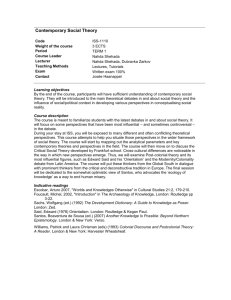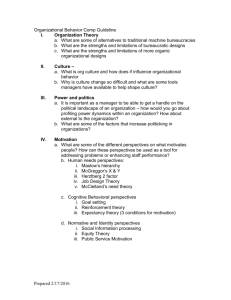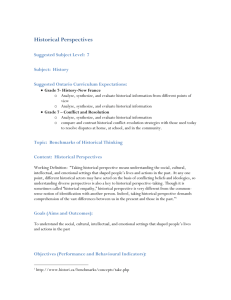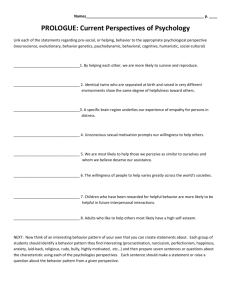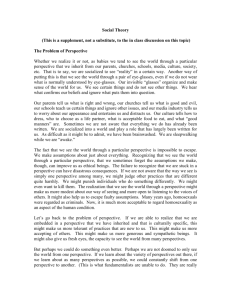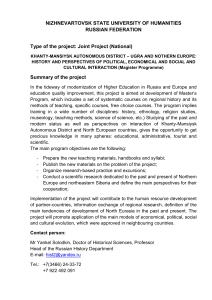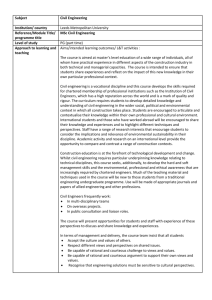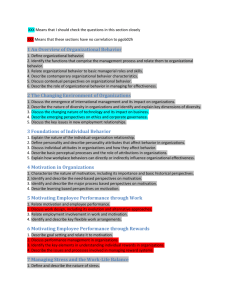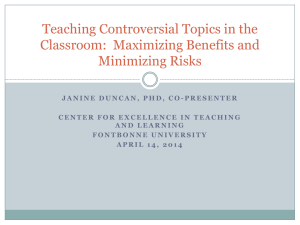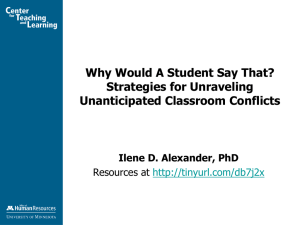ISS-1110-1415 Contemporary Social Theory
advertisement
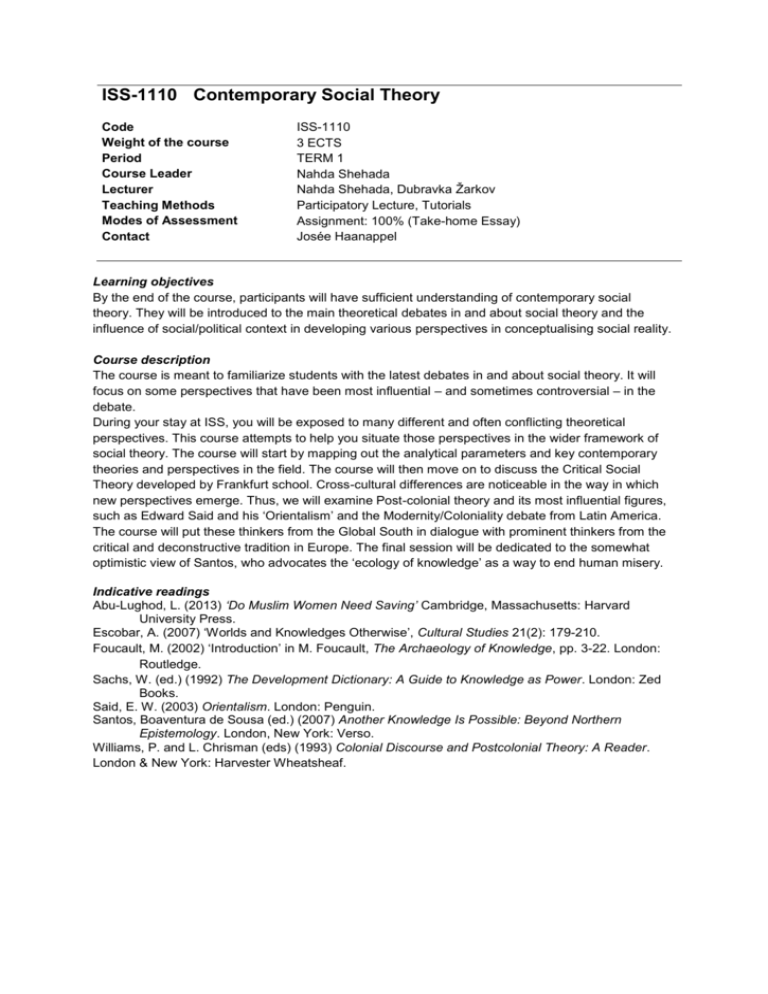
ISS-1110 Contemporary Social Theory Code Weight of the course Period Course Leader Lecturer Teaching Methods Modes of Assessment Contact ISS-1110 3 ECTS TERM 1 Nahda Shehada Nahda Shehada, Dubravka Žarkov Participatory Lecture, Tutorials Assignment: 100% (Take-home Essay) Josée Haanappel Learning objectives By the end of the course, participants will have sufficient understanding of contemporary social theory. They will be introduced to the main theoretical debates in and about social theory and the influence of social/political context in developing various perspectives in conceptualising social reality. Course description The course is meant to familiarize students with the latest debates in and about social theory. It will focus on some perspectives that have been most influential – and sometimes controversial – in the debate. During your stay at ISS, you will be exposed to many different and often conflicting theoretical perspectives. This course attempts to help you situate those perspectives in the wider framework of social theory. The course will start by mapping out the analytical parameters and key contemporary theories and perspectives in the field. The course will then move on to discuss the Critical Social Theory developed by Frankfurt school. Cross-cultural differences are noticeable in the way in which new perspectives emerge. Thus, we will examine Post-colonial theory and its most influential figures, such as Edward Said and his ‘Orientalism’ and the Modernity/Coloniality debate from Latin America. The course will put these thinkers from the Global South in dialogue with prominent thinkers from the critical and deconstructive tradition in Europe. The final session will be dedicated to the somewhat optimistic view of Santos, who advocates the ‘ecology of knowledge’ as a way to end human misery. Indicative readings Abu-Lughod, L. (2013) ‘Do Muslim Women Need Saving’ Cambridge, Massachusetts: Harvard University Press. Escobar, A. (2007) ‘Worlds and Knowledges Otherwise’, Cultural Studies 21(2): 179-210. Foucault, M. (2002) ‘Introduction’ in M. Foucault, The Archaeology of Knowledge, pp. 3-22. London: Routledge. Sachs, W. (ed.) (1992) The Development Dictionary: A Guide to Knowledge as Power. London: Zed Books. Said, E. W. (2003) Orientalism. London: Penguin. Santos, Boaventura de Sousa (ed.) (2007) Another Knowledge Is Possible: Beyond Northern Epistemology. London, New York: Verso. Williams, P. and L. Chrisman (eds) (1993) Colonial Discourse and Postcolonial Theory: A Reader. London & New York: Harvester Wheatsheaf.
